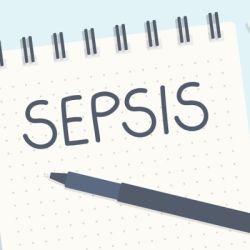The two primary reasons for using antibiotics are treating and preventing bacterial infections. However, a leading cause of the overuse of antibiotics is the misdiagnosis of sepsis. Early and accurate diagnostics using point-of-care biomarkers can help address this issue.
Sepsis is a dysregulated reaction of the body to infection. It is a significant health problem, with approximately 50 million cases yearly. Sepsis needs to be treated with antibiotics as soon as it is suspected. Early identification can ensure early treatment, ideally within the first hour. In most cases, antibiotics are administered at the slightest suspicion of infection, based on symptoms and per international guidelines. However, this can result in the overuse of antibiotics, especially because bacterial infections are proven in only 30–40% of cases.
The key problem is that inflammatory conditions have symptoms comparable to sepsis. Thus, they are often mistakenly treated with antibiotics. Also, antibiotics are often given to prevent bacterial infections acquired in the hospital. Unfortunately, this generous prescription of antibiotics results in overuse. It is estimated that nearly 50% of antibiotic prescriptions are inappropriate or unnecessary.
It is thus important to reduce the burden of sepsis while ensuring adequate antibiotic prescriptions. One solution that could potentially help address this problem is using biomarkers to decide whether or not a patient needs antibiotics.
The pancreatic stone protein (PSP) biomarker can be measured in under 10 minutes from a single drop of blood with the innovative point-of-care technology abioSCOPE®, from Abionic, Switzerland. PSP has been proven to accurately rule out sepsis with a negative predictive value of 90–95%. Hence, PSP, in addition to other diagnostic tools, can inform decisions to withhold unnecessary antibiotics.
Daily measurements of PSP in hospitalised patients can help detect sepsis up to three days before signs and symptoms appear. This early warning can provide a window of opportunity to administer timely antibiotics to patients who truly need them. Hence, PSP can be an invaluable tool in the fight against AMR.
Click here for more Sepsis news.
Source: Global Cause
Image Credit: iStock



















